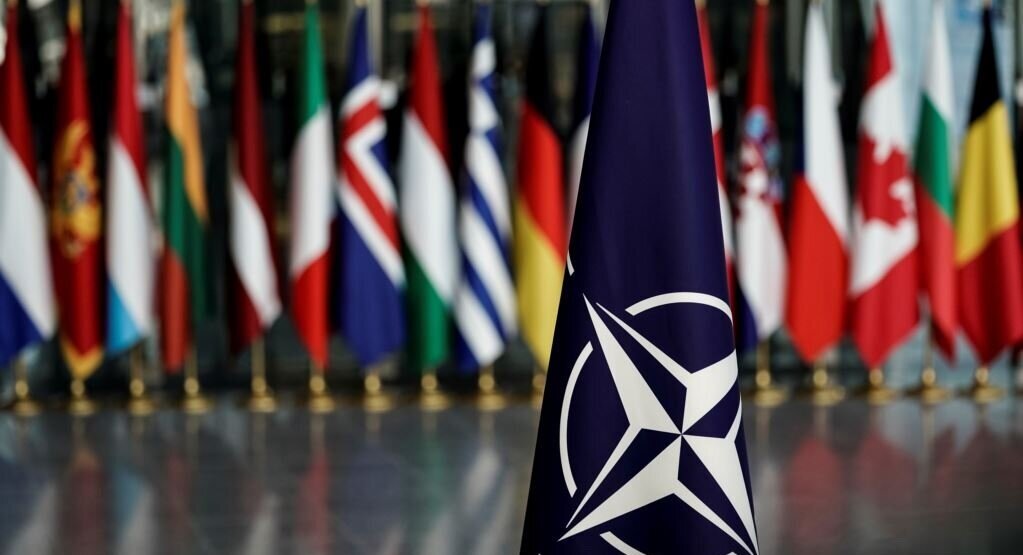What is the meaning of an outstretched hand when its own arm has been eviscerated by war and its palm now sprouts a Purple Heart Medal? This question has puzzled me since I first encountered the McGregor portrait. And it has puzzled me as being of a piece with the larger canvas of the uncertain civil-military social relationship that has accumulated in America during twenty years of war.
#Reviewing Gabriel Avilla’s No Pressure… But Don’t Mess This Up
[Avilla] offers a wealth of experience, a distinctive voice, and the courage to critically examine his actions while he exposes his audience to the issues he faced. This short volume is akin to a combination self-help book and an extended reflection on action, adroitly tracing the timeline of a typical command tour without drifting into an hagiographic memoir and accusations of self-aggrandizement. Instead, it is a candid discussion of the challenges many commanders can expect to see during their time.
#Reviewing Power on the Precipice: The Six Choices America Faces in a Turbulent World
Decline is a choice for a status quo superpower, and choices are central steps in reformulating the future role of the U.S. on the world stage. But what are those choices and are U.S. leaders ready to summon the American people to support these choices? In addressing American relative decline, Imbrie offers guidance and answers for six possible strategic choices, and he devotes a chapter to each.
#Reviewing Korea: The War Before Vietnam
In Korea: The War Before Vietnam, Callum A. MacDonald writes with short, sharp clarity. The precision of his writing does not take away from necessary details or the importance of the Korean War in international history, especially for those involved in that conflict. The book is driven by a narrative told through official documents, robust secondary sources, and scholarship developed over nearly 35 years.
#Reviewing Deconstructing Dr. Strangelove
Deconstructing Dr. Strangelove: The Secret History of Nuclear War Films is a fresh study that attempts to answer these intriguing questions. Through a close reading of a cluster of “Cold War nuclear crisis films,” which is described as “a staple of the Cold War popular cultural milieu from the 1950s to the 1980s,” this clearly written and thought-provoking book explores how these screen narratives depicted the nuclear weapons apparatus and strategic decision-making.
#Reviewing Atlas at War
The 50 stories in Atlas at War range from 1951 to 1960, curated by comics history author Michael Vassallo, who has previously written on the history of Marvel Comics. Most of the stories are about the Korean War and World War II, although there are a few stories about other conflicts. Readers will be interested to see early, non-superhero, work by famed creators such as Stan Lee, Jack Kirby, and Steve Ditko, who defined the early periods of Spider-Man and Dr. Strange. A vast array of other, lesser-known to today’s readers, talents contribute fascinating work as well. However, while this collection of early war comics will please older readers who might nostalgically remember these types of stories from their youth, and provide fascinating historiographical insight into how popular culture contributed to the culturally constructed memory of these wars, the work could probably benefit from more contextualization, analysis, and commentary.
#Reviewing Fidelis
#Reviewing The Craft of Wargaming
Despite the increasing popularity of wargaming, academic and professional sources are still scarce. The newest book on wargaming is published by the Naval Institute Press and features a robust description of wargaming as implemented by the United States Naval Postgraduate School . It explains the different purposes of wargaming with the main focus on analytic wargames.
#Reviewing Why Nation-Building Matters
This book is divided into three types of capacity building campaigns in roughly chronological order through eight U.S. interventions. The first section covers the efforts of the United States during the Cold War in Colombia, Grenada, and El Salvador. In using these examples, Mines identifies a number of conditions necessary for international interventions to succeed. First, governance will not take root without the support of the host nation and a functioning political agreement. Next, nation-building is a whole-of-government exercise and requires attention and resources equal to, if not greater, than in times of war. Finally, nation-building must include representation from all members and sections of the host population. Mines returns to these first hard lessons learned at the conclusion of his book and re-emphasizes the simple conditions requisite for successful nation-building.
#Reviewing The Caravan
Azzam’s legacy is a complicated one. It is difficult to pin down the exact extent of his influence and where others have distorted his ideas. Moreover, even though Azzam was critical of the previous era of transnational hijacking and terrorism, he ultimately became the inspiration for a subsequent, more violent movement, one that resulted in the deaths of tens of thousands of Muslims, most of them at the hands of other Muslims. But as complex as Azzam’s legacy in the evolution of global jihad has been, Thomas Hegghammer’s masterful book will certainly contribute to our growing, collective understanding of his important role.
#Reviewing Intelligence Analysis
This book has many strengths. The style is concise, and the main concepts are understandable, focusing on important state and non-state actor related issues. Each chapter ends with a summary, critical thinking questions for students and readers, as well as a detailed bibliography and notes section. Possible weaknesses derive, on the other hand, from a low level of granularity offered in the text when it comes to the illustration of some specific techniques such as structured analysis technique that could help intelligence professionals to refine their level of analysis.
#Reviewing Restoring Thucydides
This book responds to the recent upswing in interest in Thucydides in international relations and public circles, and seeks to get international relations scholars more engaged in the nuances of Thucydides. It presents common assumptions made from Thucydides’ text, demonstrates how the reality of the situation in Thucydides’ text and in Greece at the time was more complicated, and gives readers some take-aways to consider when contemplating how to apply the lessons of Thucydides. Speaking directly to international relations scholarship and theory in a way that few classical scholars would, the work is good for those who want a book that addresses the specific ways in which international relations scholars and the media interpret Thucydides. However, the work's simplifications and omissions impair its overall impact.
#Reviewing C.S. Forester’s The Ship: A Read Worthy of Rediscovery
#Reviewing Russians Among Us
Corera posits a thesis midway through the book, that Russian hybrid warfare, in all its forms, does not constitute military hard power, but it also does not conform to the traditional definitions of soft power—deferring to Joseph Nye’s description of soft power as attractive instead of coercive. Instead, Corera defines the Russian influence effort as “dark power,” playing on “greed and ambition.” The combination of this dark power with the hybrid warfare model creates a stark picture Corera argues is virtually impossible to combat.
#Reviewing Feeding Victory
#Reviewing On Obedience: Contrasting Philosophies for the Military, Citizenry, and Community
On Obedience is a triumph. It deserves an enduring spot on the reading lists of senior military leaders and on the syllabi of professional military education institutions around the world. Even so, it is an incomplete—and sometimes flawed—triumph, especially as the argument reaches its apex in describing the obedience as negotiation model in the book’s eighth chapter. Shanks Kaurin too easily concedes that those responsible for giving orders also possess the preponderance of power in these negotiations.
#Reviewing Docu-Fictions of War
Docu-Fictions of War is a unique investigation into popular culture’s depictions of war, and how civilian narratives interact with military storylines. A reader might be left wanting more artistic explorations, but its contributions to strategic studies are plentiful. That said, with hundreds of sources and a dense epistemological basis, it is not for the faint of heart. The analysis provided by Dr. Prorokova is thought-provoking, even if one is not inclined to accept certain epistemologies, and asserts a robust argument for America’s humanitarian rationale. Docu-Fictions of War is a seminal piece on war narratives that deserves every policymaker’s attention.
#Reviewing The World at War
As the U.S. enters what may well be later regarded as the Second Interwar Period, where discussion of a return to Great Power Competition has intensified, good histories need to make sense of why such wars come about and how they are fought. Furthermore, as the world wars of the Twentieth Century recede, it may make sense to treat them as episodes of a more massive conflagration, much as we tend to see The Thirty Years’ War as a whole, rather than a start-stop-start string of individual battles. Readers looking for such an offering should look elsewhere, for World at War fails to deliver.
#Reviewing Shields of the Republic
The generation living in the aftermath of World War II understood the value of these structures intrinsically. The most effective and efficient way to protect the American homeland and the economy was through global engagement and forward defense. Today, the barriers between nations and empowered subnational actors continue to shrink in the midst of a peacetime international system that is increasingly dominated by competition and coercion between great powers.





















